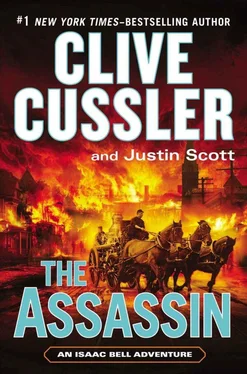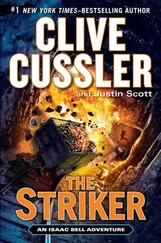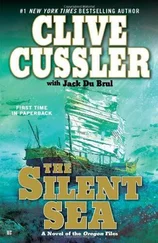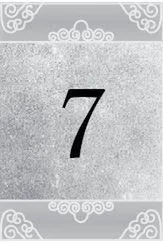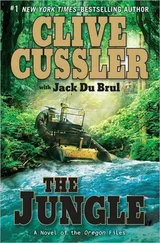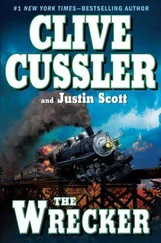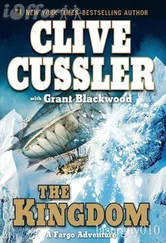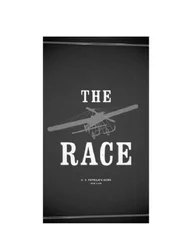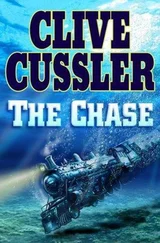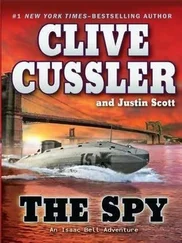The smoke grew thicker in the suburbs, the sky blacker.
They headed southeast toward the Bibi-Eibat oil field and Black Town refineries.
The slow-moving auto and clattering horses crept into an enormous field of refinery tanks. Beyond the tanks were countless refining pots, each with a squat chimney belching smoke. A sharpshooter could crouch on the climbing rungs on one of the chimneys, though he would be taking a big risk of being seen. The more likely sniping position, like the roost that the assassin had climbed up to in Kansas, would be in the virtual skyscraper city of a thousand oil derricks that marched in close-packed ranks to the edge of the Caspian Sea.
A Tatar plumber working on the roof of one of the refinery tanks dropped a monkey wrench. The tool banged resoundingly against the metal side. The noise startled a horse. It reared so suddenly that its rider nearly slid off his saddle. For a moment, there was consternation, angry shouts, and milling horses. The chauffeur had to slam on his brakes. The Peerless stopped abruptly, jostling Matters against the windshield, the chauffeur into his wheel, and Rockefeller half off his seat until caught and held firmly in place by Isaac Bell.
In that same instant, Bell heard the crack of a high-velocity rifle slug split the air inches from the back of his seat. He grabbed Rockefeller’s arm to drag him down out of the line of fire. A second bullet struck the tall detective like a bolt of lightning.
The impact of the high-velocity slug threw Isaac Bell against the side door, breaking its latch. It flew open. He tumbled out of the Peerless, ricocheted off the running board, and sprawled on the oil-soaked road. Still gripping Rockefeller’s arm, he found himself vaguely aware that he somehow landed underneath the two-hundred-pound magnate. A bullet shattered the windshield. Bills Matters and the chauffeur jumped for their lives.
Bell heard his own voice. He sounded as if he were calling to John D. Rockefeller from a passing train. “Are you O.K.?”
The old man straightened his wig.
“My, my! Mr. Bell, your coat is drenched in blood.”
From Bell’s neck to his elbow, his white suit jacket was soaked ruby red.
His shoulder felt on fire.
The shooting had stopped. Now the danger was the steel-shod hoofs of the panicked horses plunging and rearing as their riders looked everywhere at once for the source of the gunfire.
Again his voice drifted from a distance. “We better stand up, Mr. Stone. Before we get trampled.”
He struggled to his feet, used his working arm to help Rockefeller to his, then found himself holding on to the old man to keep his balance.
“There!” Bell shouted, pointing at the derricks, the likeliest place the assassin fired from.
The Cossacks drew swords and galloped in the opposite direction.
A Tatar work gang was caught in their path. The Cossacks began slashing and shooting indiscriminately. The Moslems fled from the horses, leaving behind crumpled dead and squirming wounded and some hastily discarded sidearms.
Isaac Bell was surprised to see John D. Rockefeller standing over him, staring down with a concerned expression. “Mr. Bell, you’ve fallen down again. You are wounded.”
Bell started to stand again.
Rockefeller admonished him with an imperious gesture. “Right there! As I have been saying, you are wounded.” He raised his voice. “A doctor! Fetch a doctor!”
It finally struck Isaac Bell that it was not a good idea to stand and he lay back and let his mind fix on his memory of the shooting. He was sure it was the assassin. He was also fairly sure that the bullet had been aimed at him, not at Rockefeller. The car stopping suddenly had thrown off the first shot. That was the one he heard crackle over the seat back. He had taken the second. A terrible thought pierced his whirling thoughts. Was he drawing fire at the man he was supposed to protect?
Bell motioned to Bill Matters, one of the faces hovering over him.
“Get Mr. R — Envoy Stone — under cover. I’ll catch up.”
“You O.K., Bell?”
Bell took inventory. Bloody as he was, there were no arteries spurting or he’d have bled to death by now. He tried to move his arm. That made his shoulder hurt worse. But he could move it. No bones fractured. The whirling in his head and a general air of confusion he blamed on the shock of impact from a high-velocity bullet.
“Tip-top,” he said. “Get Envoy Stone under cover! Now!”
Matters knelt to speak privately. “He says he won’t leave you here.”
“Tell him I said to get under cover before he gets killed and I lose my only client. Explain to him that I don’t know what’s going on and I can’t help him at this moment.”
They were still shouting for a doctor.
One appeared, a sturdy, barrel-chested young man in a threadbare coat, who knelt beside him, opened his bag, and took out a pair of scissors. He cut away Bell’s blood-soaked coat and shirtsleeves, exposing a ragged tear through the flesh of his upper biceps. He reached for a bottle of carbolic acid and muttered something in Russian.
“What?” asked Bell.
“Is hurting. But important.”
“Beats infection,” Bell agreed. He braced for the fiery disinfectant. For a long moment, the sky turned dark. Afterwards the doctor bandaged the wound, then took a hypodermic needle from its nest in a box padded with red velvet.
“What’s in that?” asked Bell.
“Morphine. You are feeling nothing.”
“Save it for the next guy— What are those Cossacks shouting?”
“What?”
“Doctor, you speak English.”
“I study at Edinburgh.”
“I will pay you twenty rubles a day to be my translator. What are those Cossacks shouting?”
The doctor’s eyes widened. On January’s Bloody Sunday, the workers gunned down at the Winter Palace had been demanding their pay be raised to a daily salary of one ruble.
“What is your name?” asked Bell.
“Alexey Irineivoich Virovets.”
“Dr. Virovets, what are those Cossacks shouting?”
“They are recognizing the captured guns as being looted from armory.”
Bell levered himself onto his good elbow. He saw pistols heaped on a horse blanket but no sharpshooter’s weapons.
“Now what’s he saying?” A Cossack officer was reporting loudly to a civilian dressed in top hat and frock coat. Bell pegged him for the governor’s representative or an Okhrana operative.
“He blames the attack on revolutionaries,” said Virovets.
“Help me up. We’re going for a walk.”
“I am not recommending—”
“Your objection is noted.”
Twenty minutes later, with his arm in a sling, the sturdy Dr. Virovets at his side, and anxious oil company officials trailing them, Isaac Bell walked beside the Caspian surf breaking at the feet of the derricks until he found one that had been abandoned. As much as he wanted to climb to its parapet, he doubted he could with one working arm and a spinning head.
The doctor climbed for him and reported back that he could see the Cossacks still clustered where the bullets had rained down on the Peerless. Bell was not surprised. Forging ahead before the others trampled the beach, he had spotted a single set of footprints in the sand that had approached the ladder from one direction and left in another.
But it was puzzling. The derrick was less than five hundred yards from where the auto had been. How could the assassin have missed twice? The sudden stop could explain the first bullet going awry. But why hadn’t the second or third hit him in the head? Or the assassin’s favorite target, the neck?
Isaac Bell woke up stiff and sore the next morning to a slew of cipher cablegrams from New York. The first was from Grady Forrer, who continued to substitute as directing head of the case in his absence.
Читать дальше
